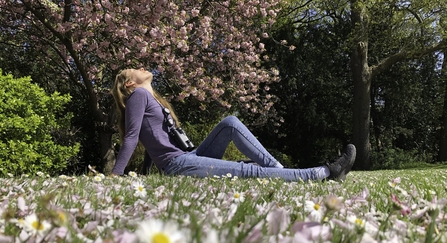We feel happier when we are in places filled with wildlife. There is a tonne of evidence proving that it provides multiple benefits to our physical and mental health – and that it saves the NHS money. So, as we celebrate the tenth year of 30 Days Wild, it’s the perfect time to remember this!
In fact, I’d like to take you back in time, to when 30 Days Wild was just five years old. The University of Derby did a fantastic piece of work to look into the benefits of bringing a bit of nature into our lives, every day, for 30 days. It’s well worth a read, but if you’re short on time, they basically found out that by taking part in 30 Days Wild, people gave their health and wellbeing a much-needed boost. Even more amazingly, the feel-good factor lasted, sometimes as long as three months after June. Incredible!



